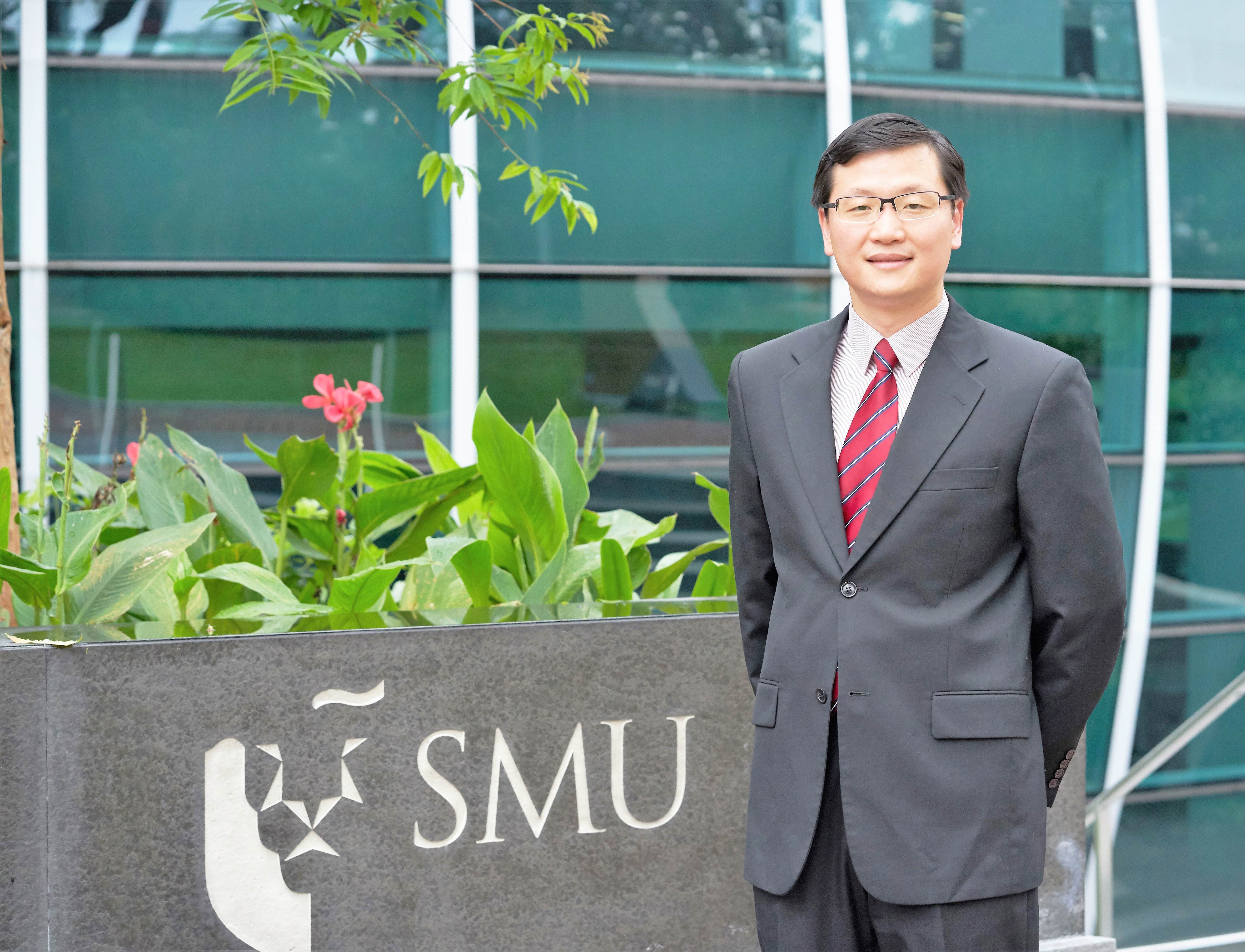
By Sim Shuzhen
SMU Office of Research & Tech Transfer – At the age of 17, Associate Professor Pasha Hsieh of the Singapore Management University (SMU) School of Law made a life-changing mistake. Applying to college in his native Taiwan, he checked the wrong box on the application form (“All the bubbles looked the same,” he explains) and ended up majoring in Turkish language and literature instead of political science.
While most other students would have requested a do-over, Professor Hsieh rolled with his choice, even studying in Istanbul for two summers. There, he gained a moniker – his Turkish friends called him ‘Pasha’, a title for generals, dignitaries and other high-ranking officials in the Ottoman Empire.
Turkey not only gave Professor Hsieh his name; it also set him along his career path. “I would say it was a beautiful mistake, because [it was there that] I became very interested in foreign affairs. I realised that there are so many good diplomats but there is a lack of international lawyers, so I decided to switch to law.”
After law school at the University of Pennsylvania and stints as a legal officer at the World Trade Organization and an international law litigator at US law firm Shearman and Sterling, Professor Hsieh now researches international economic law at SMU, focusing on legal issues in ASEAN and the Asia Pacific region.
“One of the major goals of my research is to elevate the standing of issues related to the Asia Pacific,” he explains. “Traditionally, international publications have been US- and Eurocentric, but now that we are in a multipolar world, I think the world should have a better understanding of the development in Asia.”
Linking trade and development
Free trade agreements (FTAs) have primarily been signed between developed countries (so-called North-North agreements, such as between the US and members of the European Union [EU]) or between developed and developing countries (North-South). But this is no longer the rule, says Professor Hsieh. “There’s an emerging trend of so-called South-South FTAs – agreements concluded between developing nations.”
Using the ASEAN Economic Community as a case study, Professor Hsieh examined how developing countries can use such FTAs to advance their development goals. His findings were published in a 2017 paper in the Northwestern Journal of International Law and Business, titled ‘Reassessing the trade-development nexus in international economic law: The paradigm shift in Asia-Pacific regionalism’.
In his article, Professor Hsieh argued that a development policy oriented to trade in services – referring to intangible products such as health, financial and information technology services – will make a significant impact on the region. One reason is that services trade improves the welfare of the needy – for instance, the proliferation of health services increases access to healthcare for the poor, and foreign investment in the service sector creates jobs.
Three key regulatory reforms will be critical for ASEAN to liberalise trade in services, recommended Professor Hsieh. First, ASEAN should centralise and operationalise development assistance projects, which are often fragmented and hence ineffective; second, the region should further remove regulatory barriers, particularly to trade in services; finally, to maximise gains in development, ASEAN should strengthen labour protection across member states.
The impact of mega-FTAs
In the same vein but on a larger scale, Professor Hsieh is now also studying the Regional Comprehensive Economic Partnership (RCEP), an FTA between ASEAN and six other Asia Pacific countries, including China and India. Expected to be signed by the end of 2018, the 16-country RCEP is poised to become the world’s largest FTA.
“For a long time, the focus has been on the TPP [Trans-Pacific Partnership]; RCEP is under-analysed,” says Professor Hsieh. “That’s why I wanted to look at how this ‘mega-FTA’ will impact Singapore, ASEAN and other Asian countries.”
In addition to trade in services, Professor Hsieh is also examining RCEP’s impact on investment issues and trade in goods. “I think the RCEP has potential to be a high-quality FTA – the most important thing about it is its pro-development mechanism, which may serve as a model for FTAs concluded by other developing nations.”
Solving the utilisation problem
While publishing in scholarly journals is an essential part of academic life, Professor Hsieh also wants to ensure that his research is important and relevant in practice too, he says. To take the pulse of how FTAs are received on the ground, he and his colleagues embarked on fieldwork in Indonesia, interviewing law firms, businesses and government agencies about their use of FTAs.
“To our surprise, many legal professionals and their clients are not aware of the impact of ASEAN FTAs. They know that those FTAs exist, but they don’t use them much,” he says, adding that utilisation rates are “shockingly low” and can dip below five percent. “There’s a huge gap between FTA commitment and what happens on the ground; one of my hopes is to bridge this gap.”
One way to do this is to raise awareness about FTAs and increase their transparency, he says. For example, governments can include more information about the agreements on their websites, or hold information sessions to advise businesses on how they stand to benefit.
For his part, Professor Hsieh often details his findings on trade and development issues at international forums, which are attended by policy makers and government officials from around the world. In November 2017, for example, he was invited to Brussels by the European Parliament to speak on how Asia Pacific FTAs would impact EU trade policy on Asia. “The western world is now very interested in understanding Asia Pacific FTAs – both governments and academics want to understand what happens in practice,” he says.
Back to Research@SMU Issue 58
See More News
Want to see more of SMU Research?
Sign up for Research@SMU e-newslettter to know more about our research and research-related events!
If you would like to remove yourself from all our mailing list, please visit https://eservices.smu.edu.sg/internet/DNC/Default.aspx

